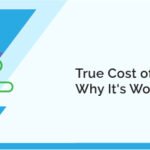Search Engine Optimization (SEO) is a dynamic field, constantly evolving to meet the changing algorithms of search engines. In 2024, the landscape is more competitive than ever, and mastering SEO requires a keen understanding of the dos and don’ts. Here are the biggest SEO mistakes to avoid in 2024 if you want your website to thrive in the digital realm.
1. Focusing on Quantity Over Quality
Quality reigns supreme in the eyes of Google. Instead of churning out numerous mediocre posts, invest your time in crafting one exceptional, well-organized blog post. Being the best result is the key to ranking high, and that means steering clear of poorly written, sloppy content.
2. Not Writing What Your Readers Want
To succeed in SEO, you must align your content with your audience’s needs. Solve real problems, address pain points, and focus on providing valuable answers. Understand your readers by delving into their desires and concerns. Remember, the essence of SEO lies in catering to your audience.
3. Not Updating/Deleting Poor Quality Content
Google favors websites with high-quality, up-to-date content. Regularly review and improve older content, especially posts that receive minimal traffic. If a post is beyond repair, don’t hesitate to delete it. Pruning your content may sting, but it fosters long-term growth.
4. Not Doing Keyword Research
Keyword research is the backbone of organic search traffic growth. Before crafting a blog post, research and ensure there’s sufficient search volume for your chosen topic. Avoid the mistake of targeting overly competitive keywords; choose a balance between relevance and competition.
5. Not Optimizing Your Blog With Your Chosen Keywords
Conducting keyword research is just the first step. Integrate your focus keyword strategically throughout your post, including the URL, title, first paragraph, image alt tags, subheadings, and meta description. Don’t forget to use secondary keywords and synonyms naturally.
6. Keyword Stuffing/Over-Optimization
Keyword stuffing is an outdated tactic that harms rather than helps SEO. Use your focus keyword judiciously and complement it with synonyms and secondary keywords. Google’s evolving sophistication values context and variety over keyword repetition.
7. Not Using heading Tags Properly
Heading tags (H tags) are crucial for both SEO and readability. Employ H1 for your post title, H2 for main subheadings, and H3 for sub-subheadings. Breaking up content with subheadings aids readers in navigating your page, and it helps Google understand your content structure.
8. Not Setting Yoast Up Correctly
If you’re using the Yoast SEO plugin, ensure it’s correctly configured. This powerful tool can significantly impact your blog’s traffic when set up properly. Don’t overlook the nuances of plugin settings; a misconfiguration could lead to unintended SEO consequences.
9. Too Many Tags
Excessive tags create confusion and contribute to ‘thin content’ pages. Optimize your tags by focusing on a handful of relevant ones that genuinely assist your readers. Consider using the ‘noindex’ tag for tag archive pages if you find managing them overwhelming.
10. Not Optimizing Your Category and Tag Archive Pages
Category and tag archive pages offer valuable opportunities for SEO. Optimize these pages strategically to enhance their visibility in search engine results. Understand the role of site structure in SEO and leverage it to your advantage.
11. Paying No Attention to Your Internal Linking Structure
Internal linking is not just a formality; it’s a critical SEO strategy. Avoid orphaned posts by ensuring each post has internal links pointing to it. Establish cornerstone content for each category and link other posts in that category back to the cornerstone article.
12. Buying/Selling Backlinks
Building backlinks is essential, but buying or selling them is a dangerous game. Google penalizes such practices, leading to demotion or removal from search results. Prioritize organic backlink building through valuable content rather than taking shortcuts.
13. Poor Site Maintenance
Google rewards well-maintained blogs. Regularly check your site for functionality, a solid internal linking structure, and updated, optimized content. A well-maintained blog signals to Google that it’s a reliable source worth promoting.
14. Not Fixing Broken Links
Broken links signal neglect and can harm your SEO. Use tools to identify and rectify broken links promptly. A website free of 404 errors contributes to a positive user experience and boosts your search engine rankings.
15. A Slow Website
Site speed is a crucial factor in SEO. Optimize your website’s speed by choosing a fast and reliable web host, reducing image sizes, enabling lazy loading, deleting unnecessary plugins and themes, and using a caching plugin and Content Delivery Network (CDN).
16. Not Having a Mobile Responsive Website
With over 50% of web traffic coming from mobile devices, a mobile-responsive website is non-negotiable. Ensure your theme is responsive, and consistently check your posts for mobile compatibility. Ignoring mobile users can lead to a significant loss of potential traffic.
17. Not Focusing on SEO at All
The biggest SEO mistake to avoid is neglecting SEO altogether. Many bloggers are now trying to fix issues they ignored in previous years. If you haven’t started working on SEO, begin immediately. It’s an ongoing process that pays off in long-term visibility and traffic growth.
In the ever-evolving landscape of SEO, avoiding these 17 mistakes can position your website for success in 2024 and beyond. Prioritize quality, user experience, and strategic optimization to emerge as a top contender in search engine rankings.





